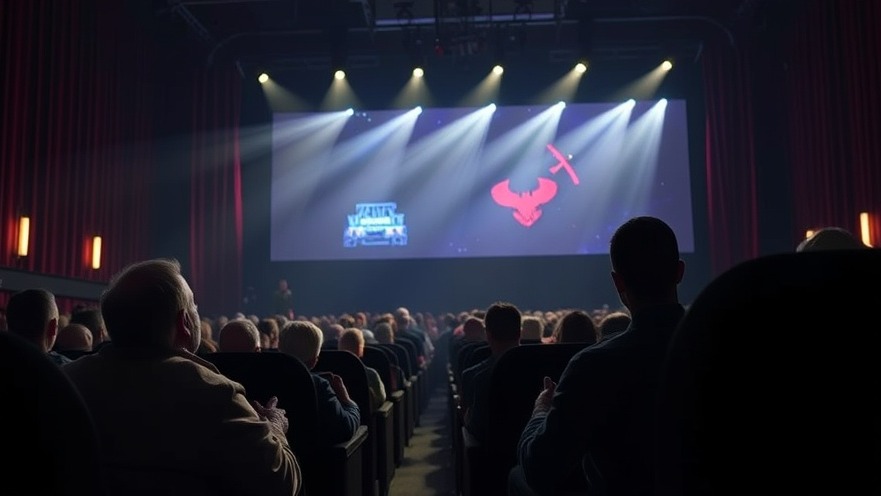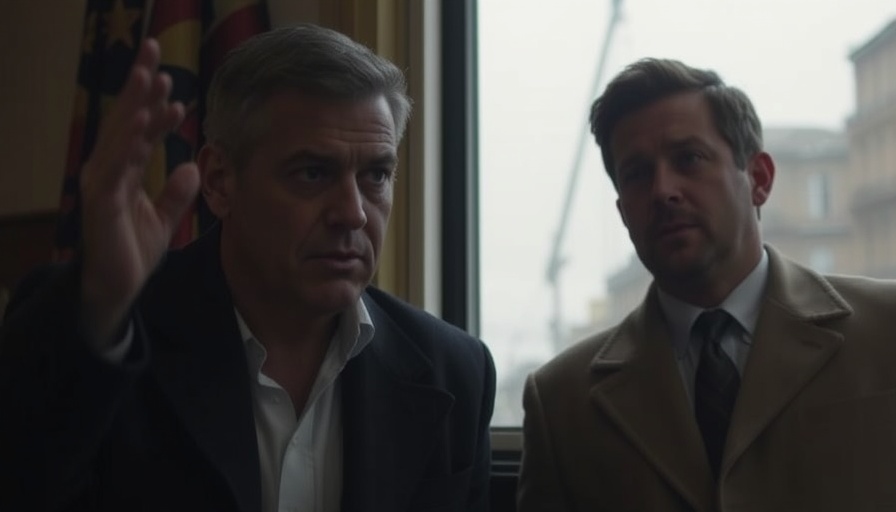
Decoding "La Grazia": A Movie Reflection of Political Ambivalence
In Paolo Sorrentino’s latest film, La Grazia, the director embarks on a journey to explore the inner workings of despair intertwined with power. Starring Toni Servillo as Mariano, the Italian president grappling with his life's choices, the film compels viewers to reflect on the complexities of governance and the personal regrets that accompany political duties.
Contrasts of Hope and Despair in Italy’s Political Landscape
Set against the wintry backdrop of Rome, La Grazia presents a dry comedy that veers into the realm of the surreal, echoing themes of Sorrentino's earlier works like Il Divo and The Great Beauty. While Mariano is celebrated for his moral rectitude, he carries the weight of decisions that can alter lives. The character's internal strife mirrors the duality of Italy’s political atmosphere, where the distinction between hope and despair often intertwines.
Personal Struggles Amid Political Responsibility
Audiences witness Mariano’s hesitance to confront pivotal decisions—such as endorsing euthanasia legislation or granting pardons. His reluctance suggests a deeper commentary on political paralysis. This struggle resonates with viewers, especially digital nomads who regularly navigate the challenges of decision-making in both their personal and professional lives. Reflecting on political leaders who carry the burden of their choices helps us understand the weight of leadership.
How Music Bridges the Gap Between Isolation and Connection
Mariano's character fascinates as he finds solace in rap music, an unexpected avenue of enjoyment that humanizes him amidst his professional facade. Music, often a reflection of societal sentiment, acts as a thread that connects individuals to broader communal experiences. For those traveling or living abroad, these musical encounters can shape their understanding of cultural nuances, reminding them that despite personal isolation, they are part of a larger tapestry of human experience.
Cinematic Techniques That Enhance Emotional Depth
Sorrentino employs a mosaic of surreal imagery and vibrant soundscapes to enrich the narrative, compelling viewers to engage on multiple sensory levels. The film's distinct electro-pop soundtrack pulsates with energy, reflecting Mariano's internal dissonance. This cinematic style invites viewers to immerse themselves in the character's journey while providing critical insight into contemporary Italian society.
Historical Context: Understanding Italy’s Political Figures
The film’s thematic undercurrents echo historical references to Italy's political landscape. By revisiting complex characters such as Giulio Andreotti, the film situates itself in a broader narrative concerning the social fabric underpinning political decisions. This rich historical context can be essential for digital nomads keen on understanding the cultures they navigate; knowing these backgrounds can enhance their travel experiences and build connections with locals.
A Conclusion That Resonates Beyond the Screen
Ultimately, La Grazia offers more than cinematic artistry; it presents a poignant exploration of personal remorse against the backdrop of public duty. As Mariano traverses his emotional landscape, he sheds light on the interplay between individual lives and political frameworks. For viewers seeking to cultivate a deeper understanding of cultural and political dimensions, watching this film can illuminate the human experiences embedded within the political narratives of other countries as well.
As you navigate your own journeys, consider how personal choices reflect larger societal dynamics. Engage with narratives like these that connect the dots between politics and personal history. A deep dive into such themes will not only shape your worldview but also inspire more thoughtful travel experiences.
 Add Row
Add Row  Add
Add 




Write A Comment